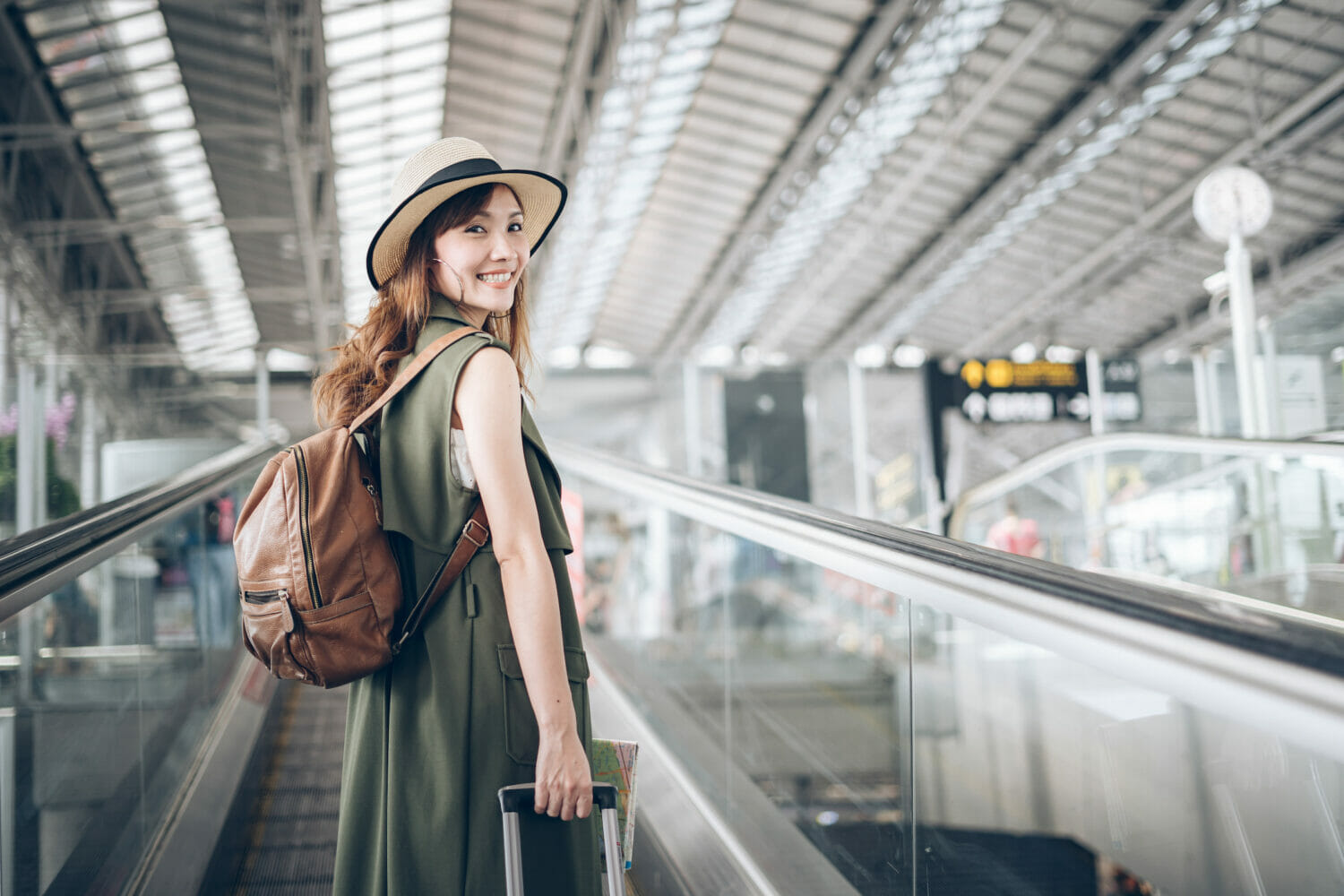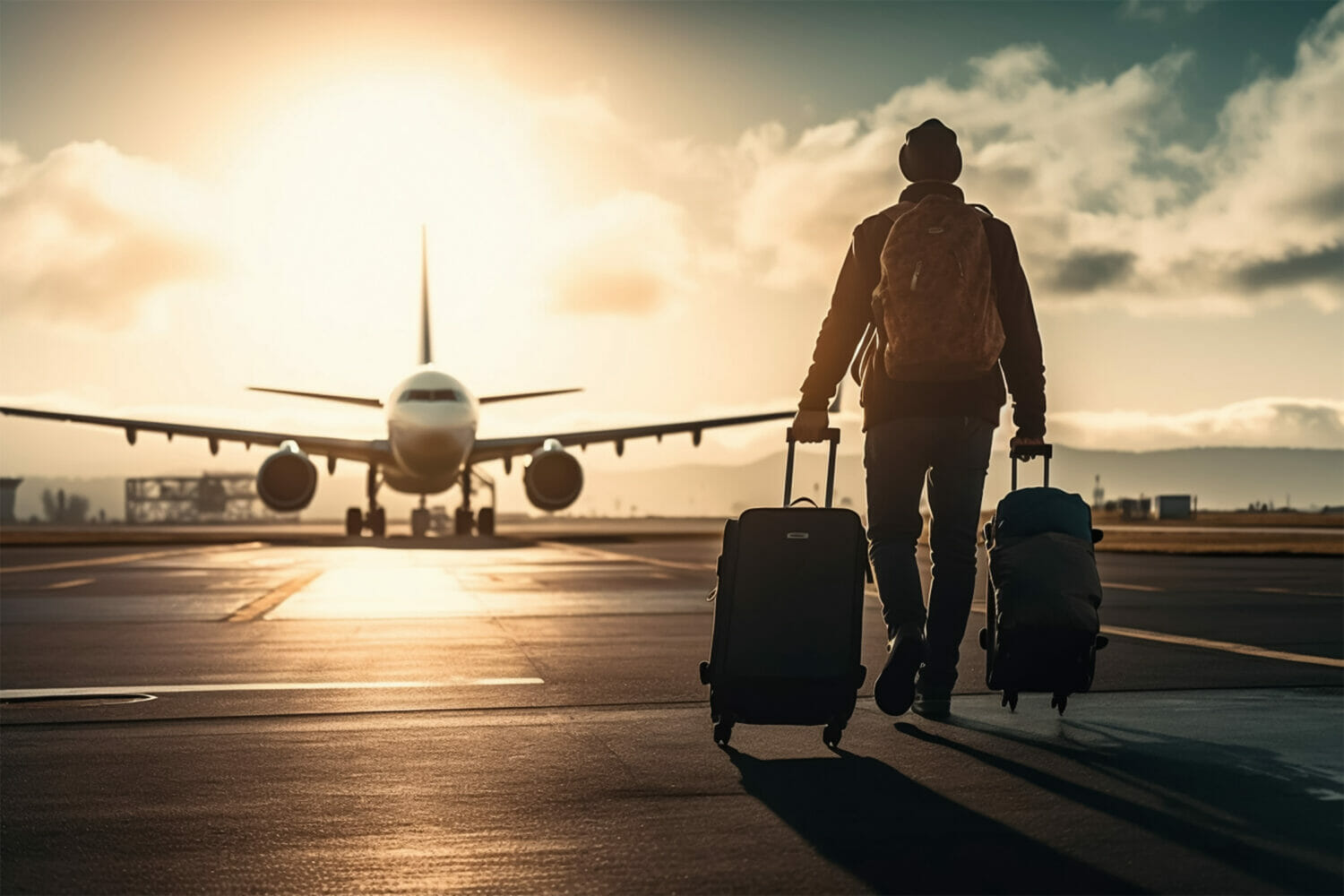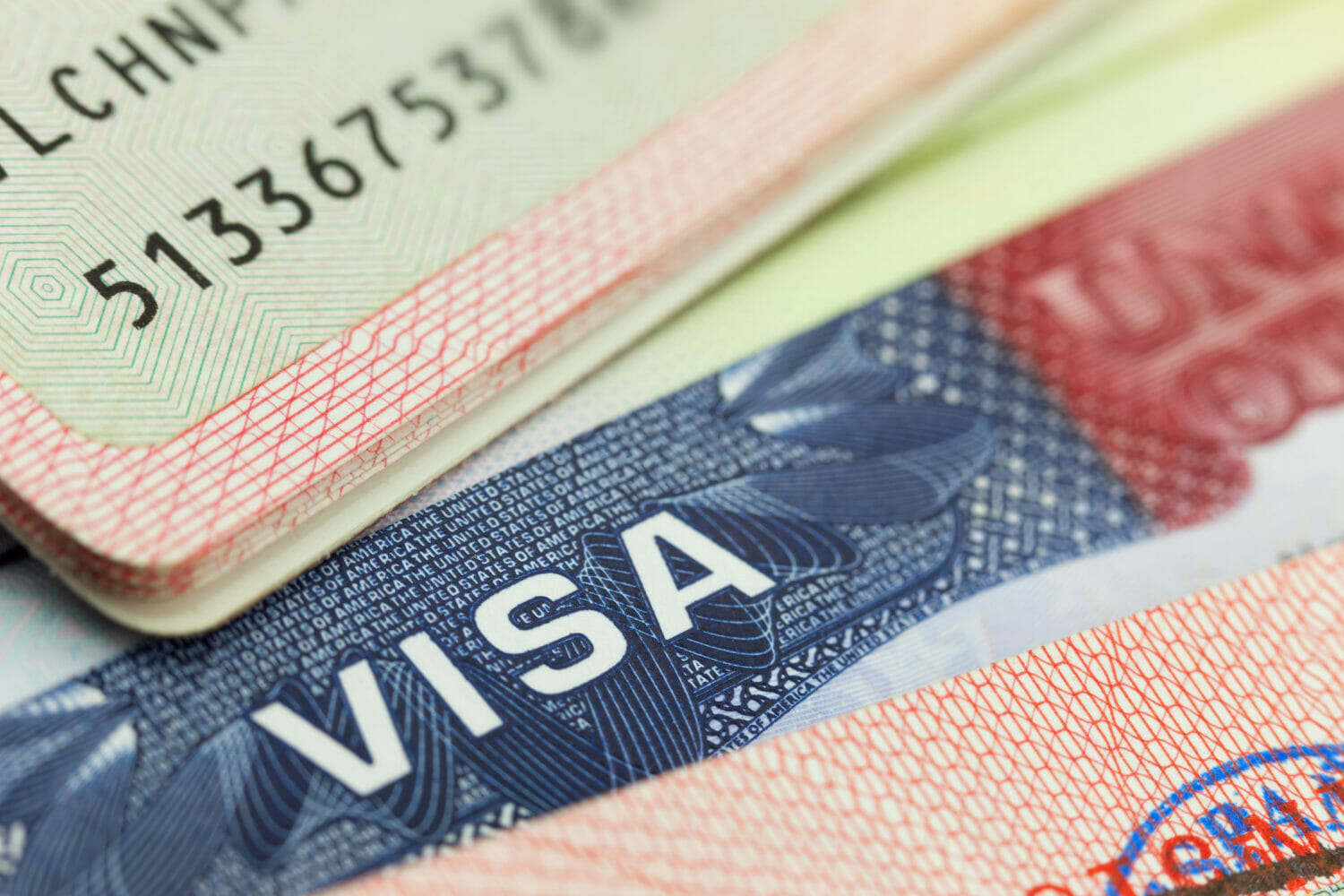
If you’re planning on applying for a travel visa to visit the United States, you probably have some questions about the application process. Unfortunately, there’s a lot of false information out there, and some tips you receive may be more myth than fact.
We debunk 11 common travel visa myths so you can apply with confidence.
Myth #1: If your visa application is denied, you cannot reapply.
This is a common misconception. A B-1/B-2 visa applicant who previously has been denied can reapply for a visa, but they’ll need to submit a new application and pay the application fee again. Keep in mind, however, that the reason for the previous visa denial will still be a factor in the new visa application. Before reapplying, make sure to carefully review the reasons for why you were denied and address any issues that were raised.
Boundless helps you complete your B-1/B-2 visa application and prepare for your travel visa interview with confidence. Our team is trained by a former consular officer, so we know what it takes to succeed. Learn more.
Myth #2: Having a lot of money will guarantee approval.
Some applicants believe that showing a large amount of money in their bank account will increase their chances of approval, but this is not true. In fact, there is no specific amount of money that can guarantee approval of a B-1/B-2 visa application.
You may have heard the term “show money,” which is used to describe money that is temporarily deposited in an account solely for the purpose of presenting a large bank balance when applying for a visa. This practice is considered a form of misrepresentation and is not recommended — consular officers are trained to detect and identify such practices. Instead, applicants should present genuine and accurate financial documents that demonstrate their ability to support themselves during their stay in the United States.
Consular officers evaluating a B-1/B-2 visa application will consider various factors beyond the applicant’s financial situation, such as the purpose of the trip, the applicant’s ties to their home country, and their immigration history. Presenting accurate and truthful information in the visa application, and providing supporting documents that demonstrate the applicant’s purpose for traveling to the United States, is what counts.
Myth #3: Meeting all the requirements guarantees approval.
Meeting the basic requirements for a B-1/B-2 visa, such as having a valid passport and demonstrating ties to your home country, does not guarantee approval of your application. Consular officers evaluate visa applications on a case-by-case basis, taking into consideration various factors beyond the requirements, including the purpose of your trip and your personal circumstances.
Myth #4: You need to book your flights before applying for a visa.

This is false. You do not need to book your flights before applying for a B-1/B-2 visa. In fact, it’s generally recommended that you do not book your flights until your visa has been approved. This will give you greater flexibility in case your visa is delayed or denied.
Myth #5: You need a fixer in the U.S. Embassy.
A “fixer” or middleman is someone who claims to have connections or influence with embassy officials and offers to assist with the visa application process for a fee. This is a common myth that some B-1/B-2 visa applicants believe will increase their chances of approval or expedite the process. However, using a fixer is not only unnecessary, but it can also be risky and may be considered visa fraud. For example:
- False Information: A fixer may advise an applicant to provide false information on the visa application, such as overstating their financial status, job position, or travel purpose. Providing false information is illegal and can result in travel visa denial or even a permanent ban on entering the United States.
- Fraudulent Documents: A fixer may provide fraudulent documents to support the visa application, such as fake bank statements, employment letters, or invitation letters.
- Concealing Information: A fixer may advise an applicant to conceal certain information from embassy officials, such as a criminal record or prior visa denial.
- Bribery: A fixer may claim to have connections or influence with embassy officials and offer to bribe them in exchange for visa approval. Bribery is illegal and can lead to visa denial, permanent ineligibility for a visa, and even criminal charges.
The B-1/B-2 visa application process is designed to be straightforward and accessible to applicants. There is no need for a fixer to assist with the application process.
Myth #6: Being invited by a U.S. citizen or resident increases your chances of approval.
While invitation letters from U.S. citizens or residents may be considered a positive factor and demonstrate the purpose of the trip, they do not guarantee visa approval. The visa application process is designed to evaluate each applicant’s individual circumstances and eligibility for a visa and is not based on their relationship with the person inviting them to the U.S.
Myth #7: Applying for a visa during the holiday season increases your chances of approval.
This is false. The consular officer will judge your application based on the same criteria regardless of the time of year. While it is true that visa processing times may be longer during peak travel periods, such as holidays, this does not impact the likelihood of approval.
Interested in traveling to the U.S.? Our experienced team can help you prepare a strong application and avoid common mistakes that lead to visa denial. Learn more.
Myth #8: If you have been to the United States before, you are guaranteed approval.

While having a previous travel history to the United States can be helpful in demonstrating your ties to your home country and your ability to abide by U.S. immigration laws, it does not guarantee approval of your visa application.
In fact, having a history of previous visits to the U.S. can sometimes work against an applicant. If the applicant has previously violated U.S. immigration laws or overstayed their authorized period of stay, this will raise concerns for the consular officer reviewing the visa application. The applicant may also be asked to explain the purpose of their previous visits and why they need to return to the U.S.
It’s always important for applicants to provide a complete and honest account of their travel history and intentions during the visa application process, regardless of whether they have visited the U.S. before.
Myth #9: Providing false information on your application can increase your chances of approval.
Some applicants may believe that providing false information on a B-1/B-2 visa application is not a big deal, or that they can get away with it. However, being untruthful on a visa application is a serious offense and can have consequences.
Firstly, providing false information is considered visa fraud, which is a crime. If an applicant is found to have committed visa fraud, they may be permanently barred from entering the U.S., even if they are otherwise eligible for a visa.
Additionally, lying on an application can also result in immediate visa denial. Including false information can also damage an applicant’s credibility with the U.S. government and may make it difficult for them to obtain a visa or enter the U.S. in the future. Consular officers may be more likely to scrutinize their future visa applications and travel plans.
It’s important to provide complete and honest information on a B-1/B-2 visa application, even if the information may negatively reflect on you. Consular officers are trained to evaluate visa applications based on the individual circumstances of each applicant, and providing false information can have serious consequences that far outweigh any perceived benefits.
Myth #10: If you are a student, you cannot apply for a B-1/B-2 visa.
Students are eligible to apply for a B-1/B-2 visa, as long as they can demonstrate that they have ties to their home country and that their trip to the United States is for a temporary and legitimate purpose, such as tourism or attending a conference. However, keep in mind that a B-1/B-2 visa does not permit students to engage in full-time study or work in the United States.
Myth #11: Having a B-1/B-2 visa guarantees entry into the United States.
While having a valid B-1/B-2 visa is a requirement to enter the United States for business or tourism purposes, it does not guarantee entry into the country. At the port of entry, a Customs and Border Protection (CBP) officer will inspect the traveler’s documents and ask questions to determine whether they meet the requirements for admission, including the purpose of their trip, the length of their stay, and their ties to their home country. Even with a valid visa, a traveler may be denied entry if the CBP officer determines that they do not meet the requirements or pose a security risk. A visa is simply a travel document, and entry into the United States is ultimately at the discretion of the CBP officer.
Applying for a B-1/B-2 visa is never a guarantee, but Boundless can help you file the strongest application possible. Our software assesses your risk of travel visa denial based on your specific situation and our experienced team helps you avoid common mistakes. Get started on your travel visa today.